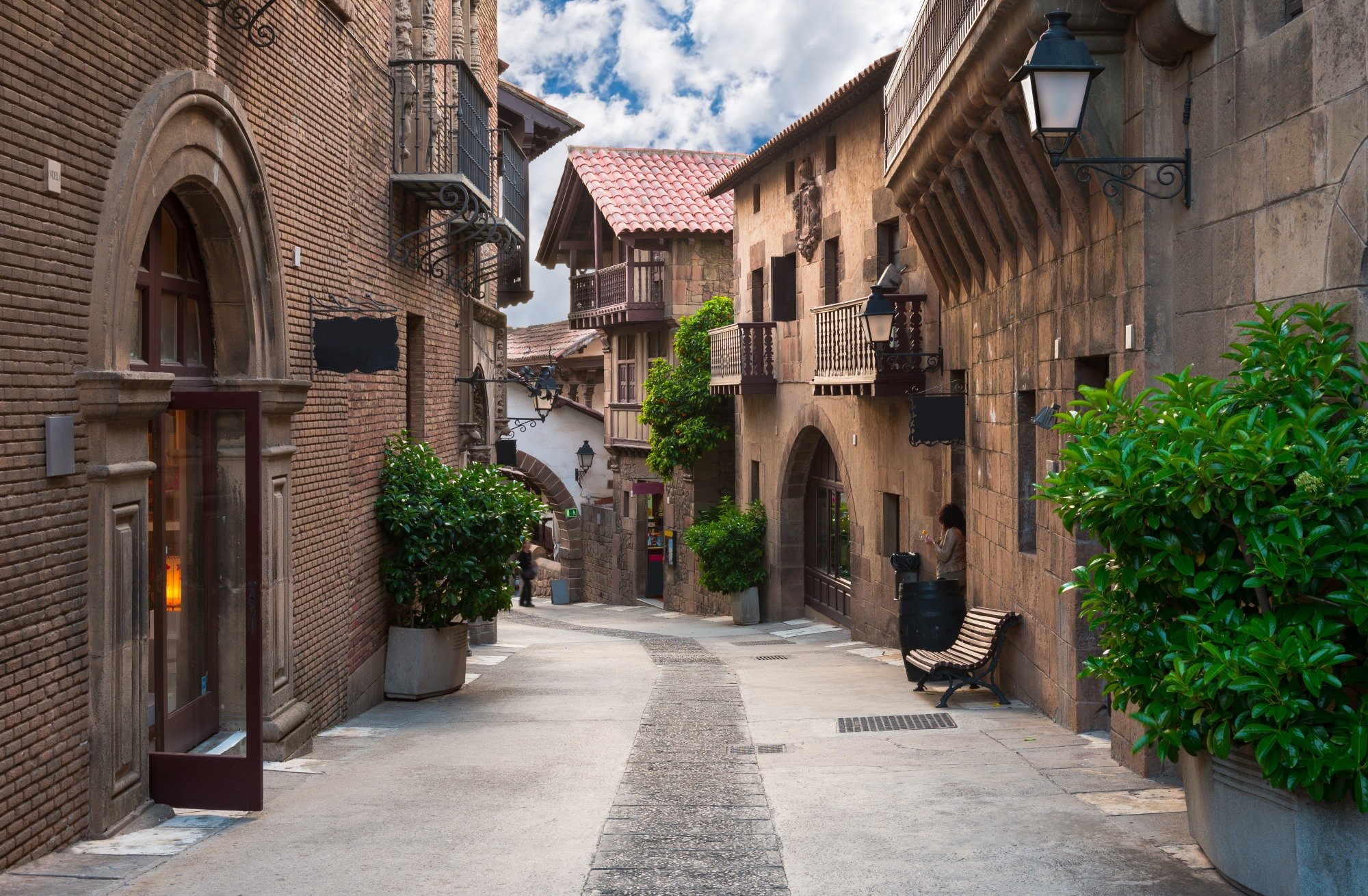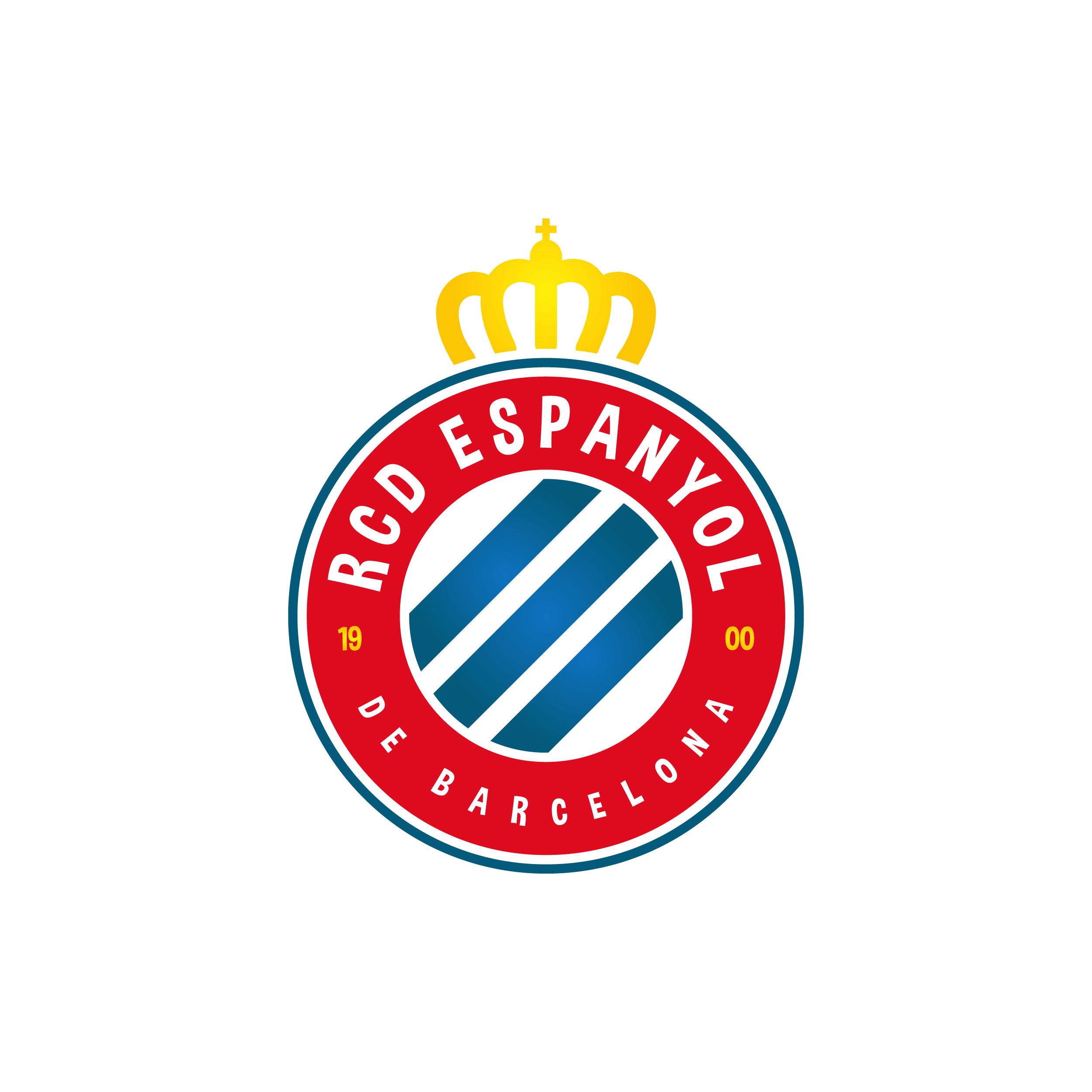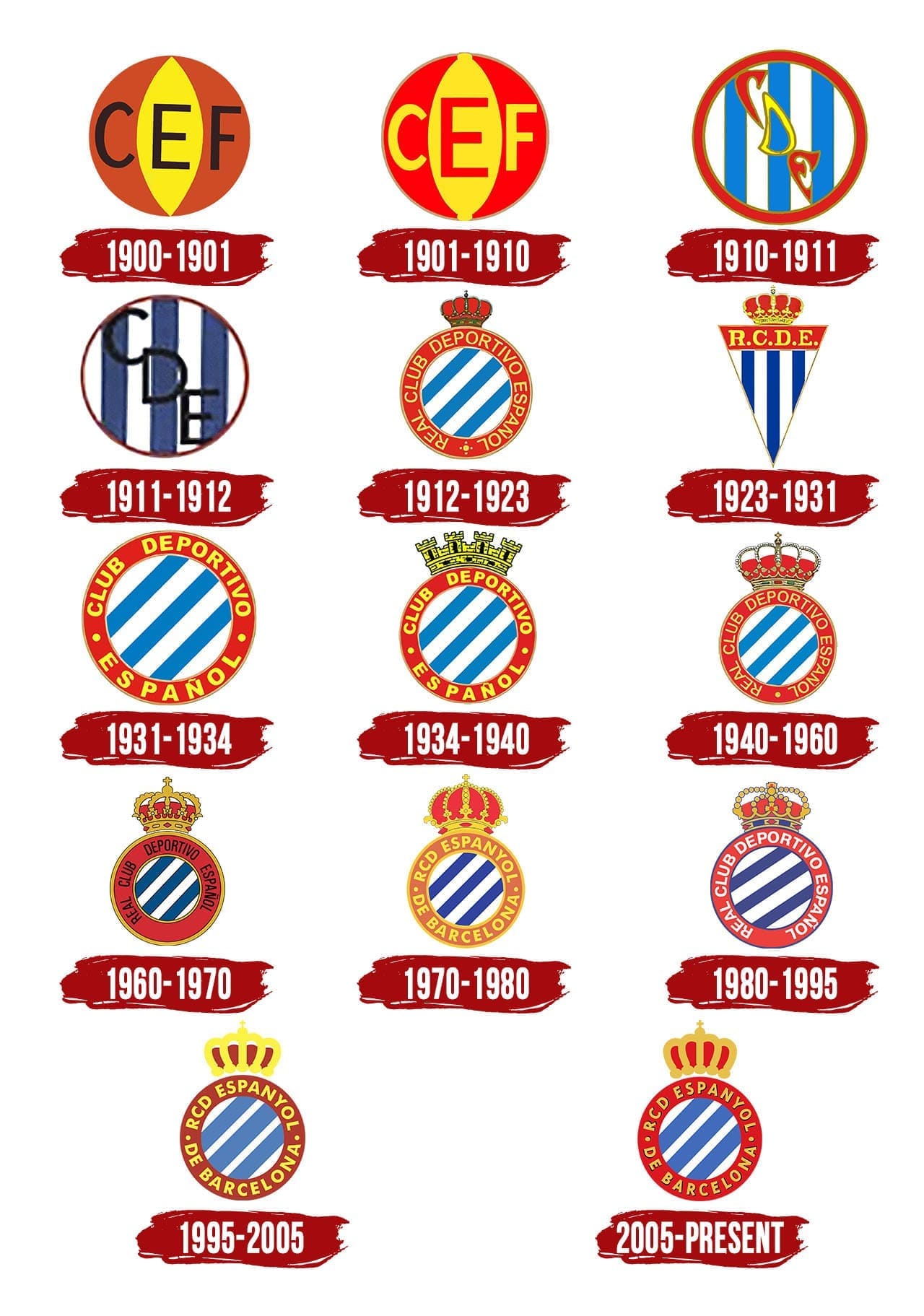Why Espanyol Is More Than Just A Football Club: A Deep Dive
Football fans around the world know Espanyol as a club with a rich history and passionate fanbase. But what makes this team unique? Why does it hold such a special place in the hearts of so many? Espanyol isn't just about football—it's about culture, tradition, and community. If you're looking to understand why this club stands out, you've come to the right place.
Let’s be real here, Espanyol isn’t just another football club. It’s a symbol of identity for many people, especially in Catalonia. The club has been around since 1900, and throughout its history, it’s been more than just a team on the pitch. It represents a sense of belonging, pride, and unity that transcends sports. Whether you're a die-hard fan or just curious about the club, there's so much to explore.
This article isn’t just about stats and matches—it’s about diving deep into what makes Espanyol special. From its origins to its modern-day impact, we’ll cover everything you need to know. So grab a coffee, sit back, and let’s unravel the magic of this iconic club together.
- 7movierulz Kannada Movie 2023 The Ultimate Guide To Streaming And Downloading
- Hd Hub 4u South Movie Your Ultimate Destination For Blockbuster Entertainment
Table of Contents
- The Rich History of Espanyol
- RCDE Stadium: The Heart of Espanyol
- Espanyol's Fierce Rivalries
- Iconic Players Who Shaped Espanyol
- The Youth Academy: Future Stars
- Espanyol's Devoted Fanbase
- Major Achievements and Milestones
- Catalan Identity and Espanyol
- The Future of Espanyol
- Final Thoughts on Espanyol
The Rich History of Espanyol
Espanyol, officially known as RCD Espanyol, was founded way back in 1900. That’s right—over 120 years of football history! The club started as a small group of enthusiasts who wanted to bring the beautiful game to the people of Barcelona. But it quickly grew into something much bigger. By the 1920s, Espanyol had already established itself as a formidable force in Spanish football.
One of the coolest things about Espanyol is its commitment to inclusivity. The name "Espanyol" itself means "Spanish," and the club was originally open to players from all over Spain, not just Catalonia. This set it apart from other clubs in the region, which were often more localized. Over the years, Espanyol has evolved, but its core values of unity and diversity have remained strong.
Early Days and Formation
Back in the early 1900s, football was still finding its footing in Spain. Espanyol was one of the pioneers, helping to establish the sport in the region. The club’s first official match took place in 1901, and from there, it never looked back. Espanyol played in various leagues before joining La Liga, Spain’s top division, in the 1920s.
- 5movierulz Kannada The Ultimate Guide To Unlocking The Hidden World Of Movies
- Letitia James Wife Unveiling The Life Achievements And Journey
What’s fascinating is how the club managed to survive through some of the toughest periods in Spanish history. From the Spanish Civil War to the Franco dictatorship, Espanyol remained a beacon of hope for many. It wasn’t just about football—it was about resilience and perseverance.
RCDE Stadium: The Heart of Espanyol
Every great football club needs an iconic home, and Espanyol is no exception. The RCDE Stadium, located in Cornellà de Llobregat, is where the magic happens. Opened in 2009, this state-of-the-art venue can hold up to 40,500 fans. But it’s not just about the size—it’s about the atmosphere. Walking into the RCDE Stadium feels like stepping into a cathedral of football.
Fans love it for its modern design and the way it brings everyone closer to the action. Whether you’re sitting in the stands or standing with the ultras, the energy is electric. Plus, the stadium isn’t just used for football—it hosts concerts, events, and even corporate meetings. It’s a multi-purpose venue that reflects the versatility of the club itself.
Why RCDE Stadium Matters
For many fans, the RCDE Stadium is more than just a building. It’s a symbol of progress and innovation. After leaving the old Sarrià Stadium, Espanyol needed a place that could represent its future ambitions. The RCDE Stadium was the perfect answer. It’s not just a place to watch football—it’s a place to experience it.
Fun fact: The stadium’s name, RCDE, stands for "Reial Club Deportiu Espanyol." It’s a nod to the club’s royal patronage, which dates back to the early 1900s. This little detail adds to the prestige and history of the venue.
Espanyol's Fierce Rivalries
No discussion about Espanyol is complete without talking about its rivalries. The most famous one, of course, is with FC Barcelona. The "Barcelona Derby" is one of the most anticipated matches in Spanish football. But Espanyol also has other rivals, both locally and nationally. These matches are more than just games—they’re battles for pride and supremacy.
What makes these rivalries so intense? It’s not just about the football—it’s about the history, the culture, and the emotions involved. Fans on both sides bring their A-game, and the atmosphere is always electric. Whether you’re at the stadium or watching from home, these matches are unforgettable experiences.
Barcelona Derby: The Ultimate Showdown
The Barcelona Derby is more than just a football match. It’s a clash of identities, ideologies, and passions. Espanyol represents a more inclusive, nationalistic approach, while Barcelona is often seen as a symbol of Catalan independence. These differences add an extra layer of intensity to the games.
Over the years, the derby has produced some incredible moments. From last-minute goals to controversial refereeing decisions, every match has its own story. And for fans, there’s nothing quite like the feeling of victory in this rivalry.
Iconic Players Who Shaped Espanyol
Every great club has its legends, and Espanyol is no exception. From Rafael Moreno Aranzadi, known as "Pichichi," to current stars like Raul de Tomas, the club has been home to some incredible talents. These players have not only left their mark on the pitch but have also become symbols of the club’s values and spirit.
Let’s take a quick look at some of the most iconic players in Espanyol’s history:
- Rafael Moreno Aranzadi (Pichichi): The first-ever top scorer in La Liga, Pichichi is a legend in Spanish football. His contributions to Espanyol in the 1920s are still celebrated today.
- Estanislau Basora: Known as "The Wizard of the Ball," Basora was a magician on the pitch. His skill and vision made him a favorite among fans.
- Raul de Tomas: One of the current stars of the team, Raul has been instrumental in Espanyol’s recent successes. His goal-scoring ability and leadership on the field have made him a fan favorite.
What Makes These Players Special?
It’s not just about their skills on the pitch—these players embody the values of Espanyol. They represent the club’s commitment to excellence, unity, and perseverance. Whether they’re scoring goals or leading the team, they inspire everyone around them.
And let’s not forget the role of the youth academy in producing these talents. Espanyol has always believed in nurturing young players and giving them a chance to shine. This approach has paid off time and time again.
The Youth Academy: Future Stars
Espanyol’s youth academy is one of the best in Spain. It’s where future stars are born and developed. The academy focuses on more than just technical skills—it teaches players about teamwork, discipline, and leadership. This holistic approach has produced some incredible talents over the years.
One of the coolest things about the academy is its emphasis on local talent. Espanyol believes in giving opportunities to young players from the region, which strengthens its connection to the community. This approach has helped the club maintain its identity and values over the years.
Success Stories from the Academy
Several players who went through Espanyol’s academy have gone on to achieve great things. Here are a few examples:
- Gerard Pique: Though he’s more famous for his time at Barcelona, Pique started his career at Espanyol’s academy. His journey from a young talent to a world-class defender is inspiring.
- Vicente Moreno: A product of the academy, Moreno became a key player for Espanyol and later went on to manage the team. His story is a testament to the academy’s success.
Espanyol's Devoted Fanbase
Espanyol’s fans are some of the most passionate in football. They’re not just supporters—they’re family. Whether it’s cheering on the team at the RCDE Stadium or celebrating victories in the streets, the fans are always there. Their loyalty and dedication are what make Espanyol so special.
What’s interesting is how diverse the fanbase is. While many fans are from Catalonia, there are also supporters from all over Spain and even the world. This diversity reflects the club’s inclusive values and its appeal to people from different backgrounds.
How Fans Support the Team
Espanyol fans are known for their creativity and energy. From elaborate tifos to passionate chants, they bring the atmosphere to life. Whether the team is winning or losing, the fans are always there to support them. This unwavering loyalty is one of the reasons why Espanyol is so beloved.
And let’s not forget the role of the ultras. These hardcore fans are the backbone of the support system. They organize events, create banners, and lead the chants. Without them, the atmosphere at the RCDE Stadium wouldn’t be the same.
Major Achievements and Milestones
Espanyol may not have as many trophies as some of its rivals, but its achievements are no less impressive. The club has won five Copa del Rey titles and finished as runner-up in La Liga twice. These accomplishments are a testament to its competitiveness and resilience.
But it’s not just about the trophies—it’s about the journey. Espanyol has faced its fair share of challenges, from relegations to financial difficulties, but it always finds a way to bounce back. This ability to overcome adversity is what makes the club so inspiring.
Key Milestones in Espanyol's History
Here are some of the most significant moments in Espanyol’s history:
- 1929: Espanyol wins its first Copa del Rey title.
- 1940: The club reaches the Copa del Rey final for the second time.
- 2007: Espanyol reaches the UEFA Europa League final, losing to Sevilla FC.
Catalan Identity and Espanyol
Espanyol’s connection to Catalan identity is complex but fascinating. While the club represents inclusivity and diversity, it also acknowledges its roots in Catalonia. This balance is what makes it unique. Espanyol embraces its Catalan heritage while also welcoming fans from all over Spain and the world.
One of the ways the club celebrates its Catalan identity is through its crest and colors. The blue and white stripes on the crest are a nod to the Catalan flag, while the red and gold colors reflect the region’s history. These small details add to the club’s cultural significance.
How Espanyol Balances Identity and Inclusivity
It’s not always easy to balance identity and inclusivity, but Espanyol does it well. The club respects its Catalan roots while also welcoming fans from different backgrounds. This approach has helped it maintain its unique identity while expanding its reach.
And let’s not forget the role of the fans in this equation.
- Desi Net The Rising Star Of The Digital Age
- 7movierulzcom Kannada Your Ultimate Guide To Streaming Movies Without The Hassle

Le Poble Espanyol DestiNations

Espanyol

Espanyol